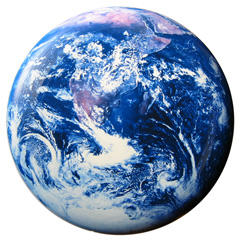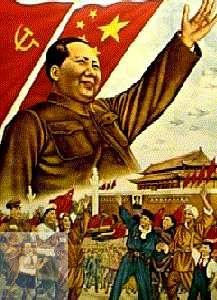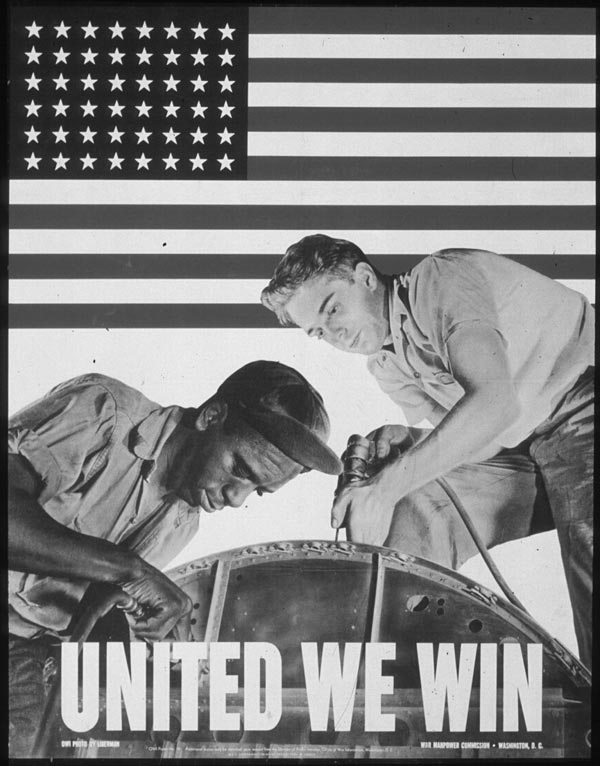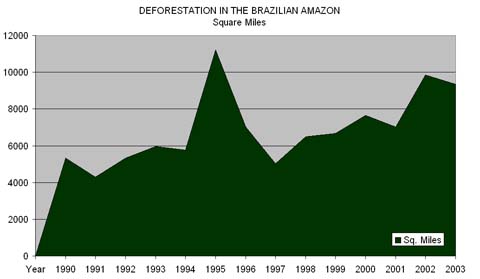


|
|
| Feedback |
|---|
Real Resources Review: A little makes a lot?I sent John Busby's 7th August article to a friend who understands more about nuclear power than I do. His reaction was that 'Mr Busby is not conversant with the concept of pebble bed reactors'. I would like to ask Mr Busby how he views that technology and whether he would care to tackle it in an article for the uninitiated like myself? Kind regards, Paddy Imhof
The problem is that mining of uranium is running down, whatever form of reactor is envisaged. See Die Welt which reports the imminent closure of some of the French reactors due to fuel shortages. The thorium alternative and fast breeders are dependent on vast development programmes which with the rapid and progressive failure of the nuclear industry will never be funded. As far as the pebble bed reactor is concerned it depends on the integrity of the pebbles and as these contain graphite this is likely to lead to the demise of this technology. The seven UK AGR's are likely to close prematurely as the graphite moderator blocks are disintegrating due to the irradiation which causes structural breakdown. Also there is an overheating due to the Wigner Energy effect which leaves a residual heat in the graphite. The gas-cooled fast reactor is also an unlikely candidate for funding for this reason as it relies on graphite moderation. The nuclear lobby in desperation is arguing that uranium can be extracted from the earth's crust and seawater and looks to fast breeders to generate ever more plutonium. All of which is fantasy. We do not have to wait too long for some of the
lights to go out in France, which will hopefully lead to a reality
check! |

| Waking up from the American Dream |  |
 |
| By Jon Rynn | |
| Dec/05/2006 | |
|
Most societies are based on a fairy tale which helps its members describe how the world works. In the case of the U.S., this fairy tale is called the “the
American Dream”, or sometimes, “The American Way of Life”. “There was a time of troubles, called the Great Depression and World War II (the first leading to the second). We surmounted them both by building a huge military machine, which defeated the Axis powers and put everybody to work. After the war, the military kept the world free and safe, and with the help of free trade, we constructed a land of big cars and big houses, all connected by big roads, serviced by big stores, and supplied by big oil and big companies. This whole system made the middle class prosperous, continues to ward off economic crises, and will stay pretty much the same forever and ever. Maybe other countries will suffer the slings of an unfair world, but it can’t happen here, because the U.S. is the greatest country in the history of the world.” The problem confronting the political system is this: the
government cannot maintain this fairy tale. When this becomes
obvious, it will lose its legitimacy, and then all hell will break
lose. In other words, people may want to reorder society in such a
way that those who hold the most power lose it. A legitimate questionNormally, when political scientists or political sociologists discuss the staying power of a regime they use the term “legitimacy”. In other words, how does a political regime make itself legitimate in the eyes of the population in order to draw their support? The question may also be, how does a regime get just enough support from the population that it is not in constant danger of being overthrown? It has long been observed that if a population is at least complacent, then it is much easier to maintain control than if the elites, even with an overwhelming military force, try to rule a seething population. We get some taste of the problem in Iraq, where it is clear that even 500,000 American troops would not solve the “problem”, the problem being the legitimacy of the American occupation.
At some point the charismatic leader has to die, whether Mao or Fidel or Ghengis Khan. The society cannot stay attached to charismatic leadership forever, the textbook case being Mao’s attempts to make himself the center of China by constantly throwing the entire society into catastrophic turmoil, as in the Great Leap Forward and the Cultural Revolution. In the case of bureaucratic-rational legitimacy, as in traditional legitimacy, the public respects the office more than the man (who would respect George W. Bush if he wasn’t President?). The public has a respect for the entire bureaucratic hierarchy, as much as they grumble about it. At some level, the public expects the bureaucracy to be competent. . But competent at what exactly? Competent in keeping alive the fairy tales, whether the fairy table is that Communism is leading to worker paradise; that the Mongols are destined to control the world; that the sun will never set on the English empire; or that the gods will make sure that the Nile overflows its banks every year.[2] If the U.S. political elites – both Republican and Democratic – do not maintain the American fairy tale, then they will lose legitimacy. But the American fairy tale has been built on a set of contradictions that will eventually make the whole system fall apart. There are three main contradictions, political, ecological and economic; and they all interact with each other. It’s lonely at the top
The main political contradiction is that the U.S. cannot control the entire planet militarily. One can argue, rationally, whether the U.S. even needs a military. Before World War II, the U.S. had a smaller army than Bulgaria, but because of its enormous manufacturing capability during World War II the U.S. put together the largest military machine in history. Before 1991, the fairy tale was that a military was needed to counter the Communists, specifically, the Soviet Union. When the Soviet Union broke apart, the U.S. military establishment had a big problem. All of its riches, its Pentagon headquarters, its aircraft carriers, its jets, its hundreds of bases all over the world, were under a greater threat of attack than at any time since World War II. The nefarious enemy? The politicians and their constituents who might want to cash in what was once called the “peace dividend”, that is, the desire to use the hundreds of billions annually funneled into the budget of the Department of Defense to solve pressing concerns for the people that were allegedly being defended. These problems included deteriorating housing, education, health care, industries; you name it, there were problems festering from sea to shining sea.
All roads lead to America
As it turned out, the Pentagon had no need to worry―they survived
the ten years between the death of the Soviet Union and the death of
the World Trade Center in 2001. Although a Democrat was in the White
House in the 1990s and there was not even the prospect of a large
war among the Great Powers, the military budget of the U.S. barely
budged. The fairy tale held firm that the military was somehow
responsible for the American Dream. American Dream OverstretchAnd yet the continuing presence of a huge military works to
undermine the American Dream.
The military becomes a crutch in international affairs, maintaining the illusion that if worse comes to worse, we can just send in the Marines, instead of engaging in the long-term task of creating international institutions. Most wars are started because overwhelming superiority creates the temptation to invade weaker countries, and using the U.S. military is the mother of all temptations. In addition, by supporting Third World dictators, the U.S. military has contributed to the “blowback” of terrorism and anti-American regimes. The particular way that the American Dream was constructed required this same global military system that is leading to the Dream’s demise. Impending ecological catastrophes are partly the result of a very efficient and very large-scale stripping of the planet used to feed the maw of unrestrained consumerism and military largesse. source: rainforests.mongabay.comThis violation of the Earth’s ecosystems was brought to you by a potent and menacing global military system, which often made sure that the powers-that-were in the Third World were helping multinational corporations raze whole forests, convert fragile ecosystems to monoculture, or poison a particular part of the world in order to collect natural resources. Industrialization is possible without such pillage, but it would require very strict rules about environmental exploitation. Such institutions can only come about as the result of multinational cooperation, not multinational corporations. Those multinational corporations always had the Navy, Marines, Air Force, and even sometimes, the Army, to let them do whatever they wanted to do. Most branches of the armed services can be used for intimidation or the easy overthrow of a weak regime. When the army gets involved, however, the clock starts ticking on the ability of the conquering power to “fulfill the mission”. Whether it is the Greeks at Syracuse, Napoleon or Hitler in Russia, the Americans in Vietnam or Iraq, or the Soviets in Afghanistan, armies cannot stay put for a long time without bringing the imperialist to its knees. Armies either leave with a colonial administration in place or in ignominious defeat, because a fighting Army is the most expensive operation that humans engage in. We are seeing this process in Iraq. This operation, which was supposed to be cheap and an example of how to keep the fairy tale of U.S. global dominance alive, was also designed to help stabilize the most fleeting of the sources of the American Dream, the free flow of cheap oil. Instead, not only does the venture expose the illusion of U.S. global control, it exacerbates another fairy tale of the American Dream, economic cornucopia, by threatening to bankrupt the Federal Government. Putting the corporations on our backsThe main fairy tale of the economic realm is that the government
does not have a fundamental role to play in the economy; and that
the economy will work best when corporations can do as they please
and are free to trade as they please. The main contradiction is that
policies encompassing this fable are leading to economic collapse.
When unions still had some power and the lack of technological means
made outsourcing expensive, manufacturing remained fairly vibrant in
the U.S., even as finance worked its way up as the career path of
prospective Prince Charmings. When container ships and
communications made outsourcing possible, corporate America
short-circuited this arrangement by exporting the capacity to
manufacture, and so the economic basis of American prosperity was
lost. Now the triumphalism of unrestrained capitalism, the service economy and consumerism is leading to what looks like, in late 2006, the start of a collapse of the dollar. A weak dollar would result in a huge rise in price of all those imports of manufactured goods, destroying part of the American Dream, and with it, the legitimacy of government office holders. It’s not nice to fool Mother Nature
The collapse of the dollar will hasten to demise of the ultimate symbol of the American Dream, cheap gasoline, an artifact of an ecological contradiction. The most destructive fairy tale was that cheap gasoline was forever, that pouring trillions of dollars into suburbs, exurbs, malls, gas stations, and airports was a long-term investment, rather than a tragic waste of a once in a billion-year gift of a unique resource, oil. On top of this, in ways we can only dimly perceive, the original organic beings that made up the 2 trillion barrels of petroleum and trillion-plus tons of coal profoundly affected the climate of their time, and the release of their carbon, effectively all at once, will have unknown affects at this point in the Earth’s history But that is only half of the story. The important ecosystems of the planet since the time that the fossil fuels were organisms have been forests, oceans, freshwater systems and grasslands. All are being systematically destroyed in order to feed, not only the American Dream, but now all the other Dreams of all the other peoples on the planet, including not only European Dreams but Chinese and Indian ones as well. One would have thought that the descendants of once innovative civilizations would think that the height of human culture would extend beyond highways and suburbia. The growth of car ownership continues to climb worldwide, even though it is clear that the supply of gasoline is not climbing with them. Eating your seed cornAlmost all peoples on all continents are now caught in the agricultural “revolution” of dumping huge amounts of fossil-fuel-based pesticides and fertilizers on fast eroding soils, themselves built up only after forests and grasslands contributed their organic matter for hundreds of years. The tractors used on farms, the transporting of food hundreds and thousands of miles, the packaging, processing, and refrigeration, have all depended on the miracle fuel, oil.[5] Vast herds of livestock are only possible because 80% of the fossil-fuel-based grain grown in the U.S. is used to feed them. Meanwhile, the orgy of grain cultivation has been made possible by drawing down underground water reservoirs built up over thousands of years. Ecologically, the American Dream has been made possible by the drawing down of the Earth’s assets, including whole ecosystems. When they are gone, the American Way of Life will be gone. Once upon a time…ecently there has been a debate within the environmental movement, sparked by a piece called “The death of environmentalism”.[6] One of the authors’ complaints was that the environmental movement was only presenting a negative vision of the future. Martin Luther King did not say in his most famous speech, “I have a nightmare”, but “I have a dream”. To this criticism Gus Speth, the Dean of Yale’s School of Forestry, recently commented[7]:
While I agree with Speth, I also agree with the critics. We need to create a new set of fairy tales, or fables. Not all fables are bad. The story about killing the goose that lays the golden eggs is certainly applicable to the problems we face. People need a fairly simple story that they can carry in their heads, even if they are aware of greater complexities. In this spirit, I present a different fairy tale:

Everybody will live happily ever after. You can contact Jon Rynn directly on his jonrynn.blogspot.com .
You can also find old blog entries and longer articles at
economicreconstruction.com. Please feel free to reach him at
This email address is being protected from spam bots, you need
Javascript enabled to view it
. ----------------------------------------------------------------- [1] From the essay,
Politics as a Vocation, which can be seen online
at or part of the various compendiums. [4] Friedrich List, The National System of Political Economy, which is available online . [5] See, for instance, Chapter 2 of Plan B 2.0 by Lester Brown. [6] http://www.thebreakthrough.org/images/Death_of_Environmentalism.pdf%20 [7] November 13, 2006 podcast of the radio talk show, EcoTalk , syndicated by Air America. |
 |
| Register Free to receive updates of latest stories |
|---|
| Polls |
|---|

 Most
societies are based on a fairy tale which helps its members describe
how the world works. In the case of the U.S., this fairy tale
is called the “the American Dream”, or sometimes, “The American Way
of Life”...The problem confronting the political system is this: the
government cannot maintain this fairy tale. When this becomes
obvious, it will lose its legitimacy, and all hell will break
lose. In other words, people may want to reorder society in
such a way that those who hold the most power lose it.
Most
societies are based on a fairy tale which helps its members describe
how the world works. In the case of the U.S., this fairy tale
is called the “the American Dream”, or sometimes, “The American Way
of Life”...The problem confronting the political system is this: the
government cannot maintain this fairy tale. When this becomes
obvious, it will lose its legitimacy, and all hell will break
lose. In other words, people may want to reorder society in
such a way that those who hold the most power lose it. The great
political sociologist Max Weber proposed that there are three main
types of legitimacy that leaders use to dominate their society.
The great
political sociologist Max Weber proposed that there are three main
types of legitimacy that leaders use to dominate their society.





